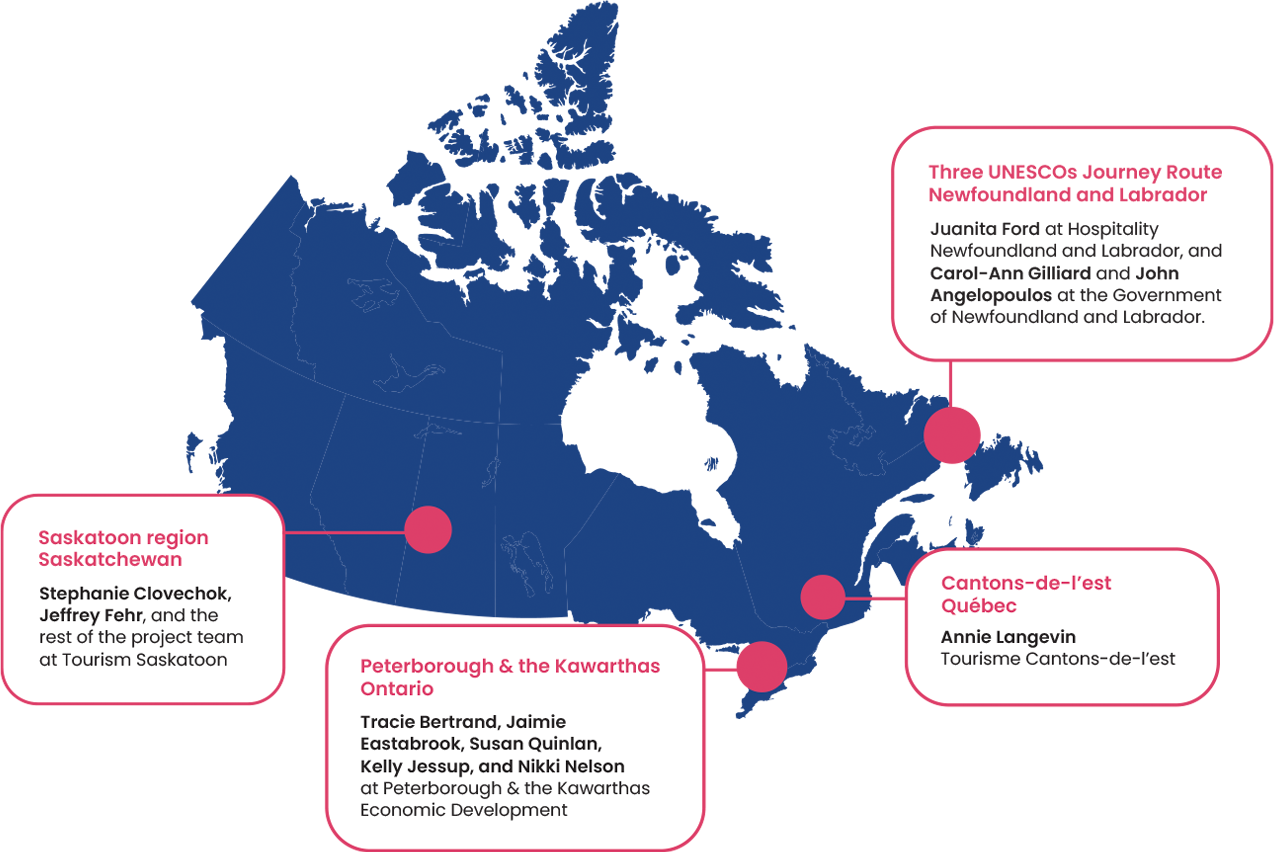01 Developing the Guidelines
Culinary Tourism Strategy Development
Guidelines
1
Acknowledging all First Nations, Inuit, and Métis peoples who were here before us, as well as those who live with us now, and the seven generations to come, is the starting place for all tourism development work in Canada. As Indigenous peoples have done since time immemorial, it is the responsibility of all to be stewards and caretakers of the lands and waters of the place they call home, and to respect the cultures, ceremonies, and traditions of all who reside there.
Indigenous foods and foodways are an integral part of tourism in Canada and Indigenous culinary products and experiences will continue to elevate the tourism landscape across Canada in the years to come. Through the combined efforts of several organizations, including the Indigenous Tourism Association of Canada, Indigenous Culinary of Associated Nations, and provincial and territorial industry organizations, along with Indigenous tourism businesses, Indigenous culinary tourism is strengthening Canada’s value proposition.
The Tourism Industry Association of Canada (TIAC), with funding from the Government of Canada’s Canadian Experiences Fund, worked with the Culinary Tourism Alliance (CTA) from 2019 to 2021 to develop the national guidelines for rural and remote destinations as part of the Elevating Canadian Experiences Program.
The CTA worked alongside municipal and provincial partners to co-develop four distinct and context-specific strategies to grow culinary tourism in four destinations. Across the four pilot destinations, the CTA formed four distinct teams to facilitate the strategy development processes. Importantly, each culinary tourism strategy was co-developed with tourism teams from the destination and employed a community-based participatory research approach. The guidelines would not have been possible without the dedication, energy, and efforts of the destination development teams at the four strategy development pilot destinations:
- Cantons-de-l’est, Québec
- Annie Langevin at Tourisme Cantons-de-l’est
- Peterborough & the Kawarthas, Ontario
- Tracie Bertrand, Jaimie Eastabrook, Susan Quinlan, Kelly Jessup, and Nikki Nelson at Peterborough & the Kawarthas Economic Development
- Saskatoon region, Saskatchewan
- Stephanie Clovechok, Jeffrey Fehr, and the rest of the project team at Tourism Saskatoon
- Three UNESCOs Journey Route, Newfoundland and Labrador
- Juanita Ford at Hospitality Newfoundland and Labrador, and Carol-Ann Gilliard and John Angelopoulos at the Government of Newfoundland and Labrador.

Additionally, the Alliance de l’industrie touristique du Québec, Hospitality Newfoundland and Labrador, the Tourism Industry Association of Ontario, and Tourism Saskatchewan were key partners in facilitating the connections with each regional partner and supporting the pilot process.
Before the start of the four pilot projects, the CTA conducted desk research into culinary tourism strategy development processes. This involved researching culinary tourism strategies or plans developed on or after 2015. A total of 16 culinary tourism strategies were analysed, these were focussed on rural and remote destinations and included a mix of six Canadian and 10 international examples. As part of this scan of methodologies, the CTA also referred to the United Nations World Tourism Organization’s Guidelines for the Development of Gastronomy Tourism (2019).
The resulting guidelines are informed by the above-mentioned research and by the methods, processes, activities, and learnings from the four culinary tourism strategy development pilots. Through each of the pilots the CTA used developmental evaluation to follow learnings and adjust each pilot, and ultimately to inform these guidelines. The developmental evaluation approach for the pilot was facilitated by Camilo Montoya-Guevara at the Culinary Tourism Alliance with support from Walter Jamieson, PhD. Adjunct Professor, Hospitality and Tourism Management, Ryerson University. Thank you!
Finally, this work would not have been possible without the combined time, energy, and effort of Connie Trombino and Vince Accardi at the Tourism Industry Association of Canada.
Culinary Tourism Alliance
The national guidelines were developed by a team at the Culinary Tourism Alliance, including Trevor Jonas Benson, Camilo Montoya-Guevara, and Caroline Morrow.
They were informed by learnings that came out of a pilot process and the combined experience of several additional individuals, including Martin Lacelle, James Arteaga, and Valerie Keast.
The Culinary Tourism Alliance is a not-for-profit industry organization dedicated to bridging the gap between the food & drink and tourism industries.

